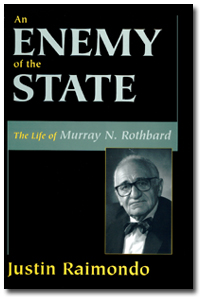 Nobel Laureate Milton Friedman died last week at 94. He was a prolific author and friend of liberty. He was also a friend of the state. The Cato Institute had this to say about Friedman's passing:
Nobel Laureate Milton Friedman died last week at 94. He was a prolific author and friend of liberty. He was also a friend of the state. The Cato Institute had this to say about Friedman's passing:Friedman was widely regarded as the leader of the Chicago School of monetary economics, which stresses the importance of the quantity of money as an instrument of government policy and as a determinant of business cycles and inflation. In addition to his scientific work, Friedman also wrote extensively on public policy, always with primary emphasis on the preservation and extension of individual freedom. Friedman's ideas hugely influenced both the Reagan administration and the Thatcher government in the early 1980s, revolutionized establishment economic thinking across the globe, and have been employed extensively by emerging economies for decades.

Murray Rothbard was also a prolific author and friend of liberty. When he passed away in 1995 he was 69. In a review today of Justin Raimondo's biography of Rothbard, "Enemy of the State," Mises Institute president Lew Rockwell summarizes Rothbard's views as follows:
Rothbard was the architect of the body of thought known around the world as libertarianism. This radically anti-state political philosophy unites free-market economics, a no-exceptions attachment to private property rights, a profound concern for human liberty, and a love of peace with the conclusion that society should be completely free to develop absent any interference from the state, which can and should be eliminated.
Murray Rothbard was not a friend of the state, nor did he win a Nobel prize.
No comments:
Post a Comment